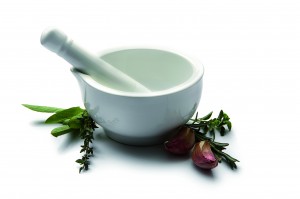 So many of us lead such busy lives that we only take stock of our health when we are laid low by a virus or infection or are actually diagnosed with an illness. The philosophy of Naturopathy is that if we live in a balanced way, attuning to the needs of our minds, bodies and spirits, that not only can we prevent illness, but we can experience true wellness. Experts from the College of Naturopathic Medicine will be presenting a trio of seminars on health. Here they give their viewpoints.
So many of us lead such busy lives that we only take stock of our health when we are laid low by a virus or infection or are actually diagnosed with an illness. The philosophy of Naturopathy is that if we live in a balanced way, attuning to the needs of our minds, bodies and spirits, that not only can we prevent illness, but we can experience true wellness. Experts from the College of Naturopathic Medicine will be presenting a trio of seminars on health. Here they give their viewpoints.
Stephen Langley
Naturopath, Herbalist, Acupuncturist & Homeopath
Most of us live in a “sea” of electromagnetic and chemical pollutants which were completely alien to us 40 years ago. Add to this a dose of de-natured foods, speed grown and mass produced, and you see the reasons for the epidemic of ill health in Ireland. The great news is that you don’t have to live that way. Some supportive therapies and simple changes to your lifestyle and diet, and you can be back in the peak of health in no time. The body has the capacity to heal itself if given the right conditions, and naturopathy, along with acupuncture and herbal medicine can give the body the support it needs to bring it to optimum health on a physical, emotional and spiritual level.
Naturopaths tend to see people in two conditions: either deficient people who need to be built up with good nutrients and a healing diet plan, or those that are toxic and need to be supported in their detoxification through fasting, juicing and diet, as well as exercise and emotional changes. Naturopathy respects the bio-individuality of each person. Two people may present with the same diagnosis but need profoundly different treatment. Naturopathy is the medicine of the 21st century, as it looks at creating tailored programs to suit each person and their own specific strengths and weaknesses, and to teach the skills everyone needs to take responsibility for their own health. Prevention, as always, is the best cure.
Róisín O’Kelly
Naturopath & Herbalist
We live in exciting times! In recent years, herbs which have been used for thousands of years for common conditions have been scientifically tested with amazing results. Double-blind, placebo controlled trials have shown the effectiveness of well known herbs for everyday complaints. Herbalists now have tradition and science on their side when using herbs such as Cayenne for poor circulation, Garlic for the common cold and viruses, Devil’s Claw for Arthritis and general aches and pains, Tea Tree for stubborn fungal infections, Echinacea for lowered immune system functioning, Bilberry for improved vision, Hawthorn for cardiac problems and many more.
We have access to some of the most useful medicines in our own cupboards. Some of the things you can use in your own home are:
· A basic chicken soup containing parsley, thyme, rosemary, onions and garlic. It is now proven that it can relieve chronic sinusitis as powerfully as mucolytic drugs.
· a combination of lavender, camomile and passionflower as a bed time drink to improve your sleep and relieve stress.
· Aromatherapy oils. You can enjoy the technique of burning oils to reduce infection in the home.
· a tiny shot of Cayenne Pepper to improve circulation to every cell and organ in the body.
Tom O’Brien
Homeopath & Psychotherapist
Many of us know what we need to do in order to experience better mental and physical health, but we simply don’t do it. Good intentions often come to nothing. The barriers to change include the experience of low energy, negative thoughts and feelings (particularly feeling overwhelmed) which may be part of coping with everyday stress. Clear thinking, common sense and natural medicine can provide practical tips to help each of us to take a closer look at what we want from life and how to get it.
Avril Ivory, health psychologist, also adds that, ‘Further barriers may include not believing that we can change, failure to set clear goals, a lack of ability to identify our deepest needs and, an often very overlooked factor, lack of social support. In some tribal cultures, herbal medicines are only administered to patients if the patient identifies who from the tribe has agreed to help support them in making changes. Identifying and asking for support as we embrace change is essential. Goal setting is key to change; writing down our goals in a manner that is clear, specific, measurable and realistic is very helpful. Assessing our work/life balance and ensuring that it allows us to be well is also crucial’.
To learn more about these topics, CNM are running a Trio of Seminars in the next few months:
Naturopathy – A Health Model for the 21st Century. Stephen Langley.
2nd March 2010, 7pm – 9pm
Barriers to Change. Tom O Brien & Avril Ivory.
22nd April 2010, 7pm -9pm
Herbs for Everyday Living. Róisín O Kelly.
11th May 2010, 7pm to 9pm
The seminars will be held in Griffith College, Dublin 8. To find out more information or to book a place, call 012353094 or email dublininfo@naturopathy-ireland.com
Entry Fee: €35 for 3 lectures or €15 each
(CNM Students €27 for 3 lectures or €10 each)

![istock_000004638875small-300×199[1]](https://www.positivelife.ie/dev/wp-content/uploads/2010/03/istock_000004638875small-300x1991.jpg)
